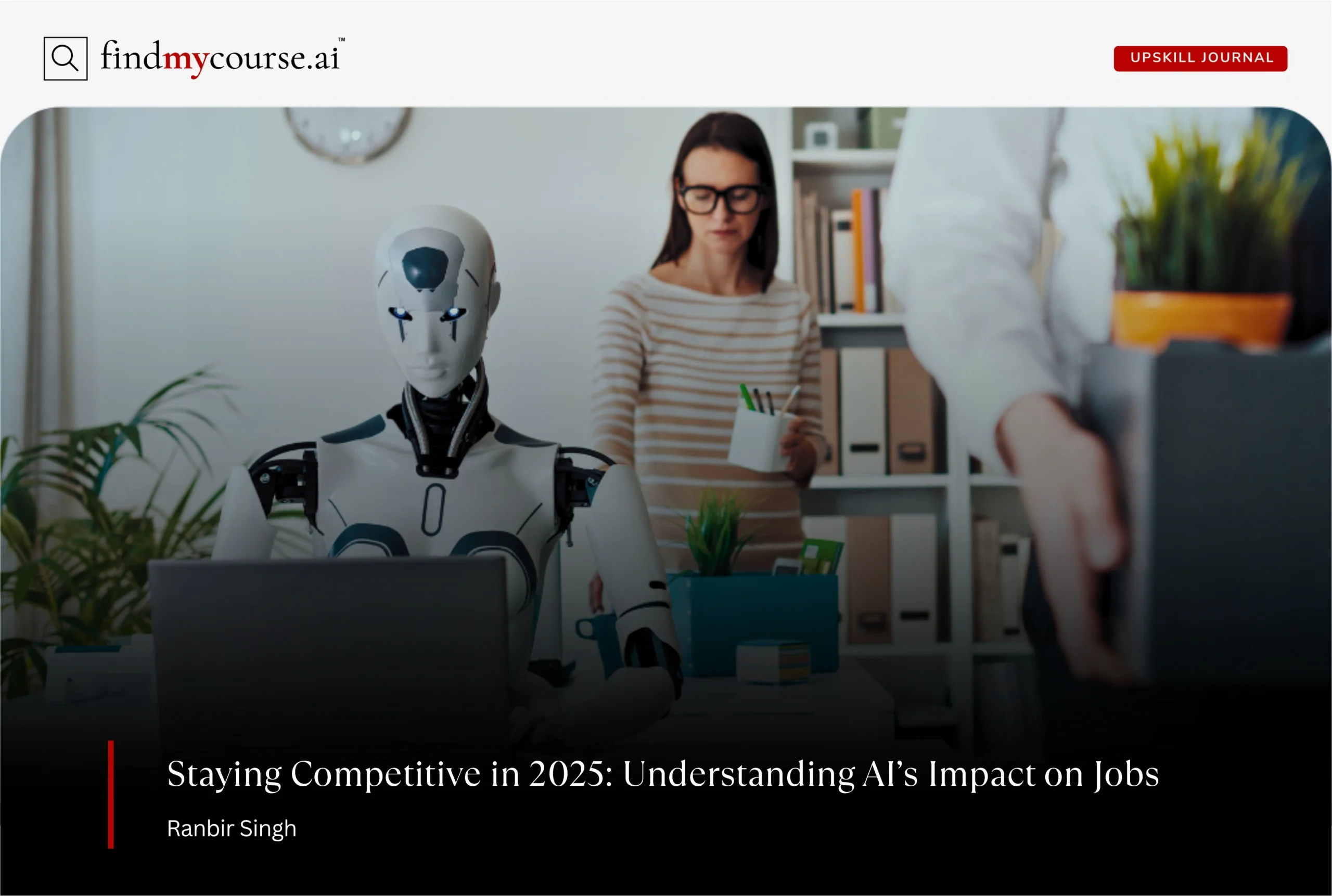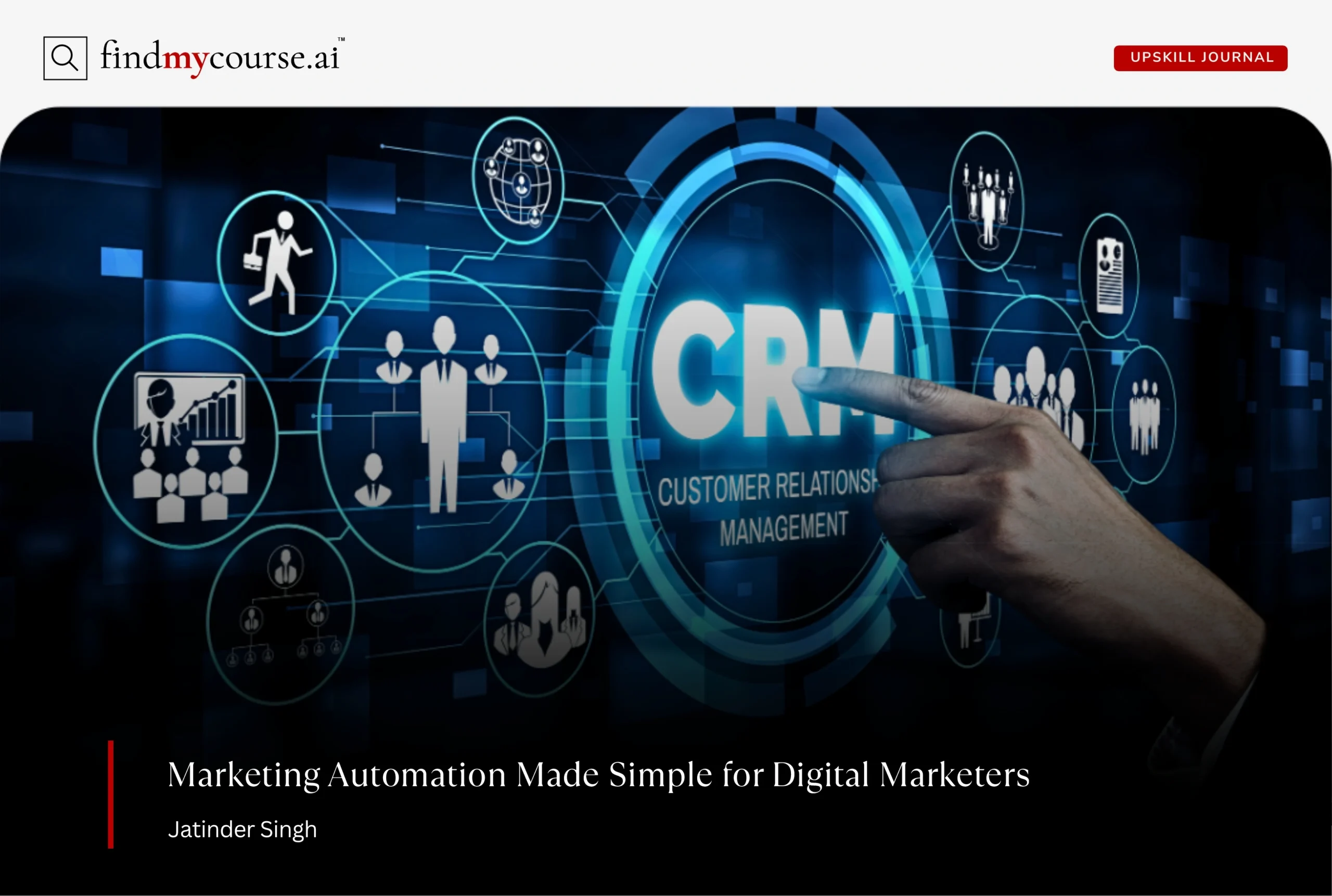The job market is shifting at an unprecedented pace, driven by artificial intelligence (AI) and its growing impact on jobs. Routine tasks are being automated, some roles are disappearing, and others are also evolving into entirely new opportunities. Thus, understanding AI impact on jobs is no longer optional—it’s essential for anyone looking to stay relevant. Workers who proactively upskill, embrace uniquely human strengths like creativity and emotional intelligence, and learn to collaborate with AI will be best positioned to thrive. This guide explores the changing job landscape, highlights careers at risk and emerging roles while offering actionable strategies to succeed in an AI-driven world.
How AI is Reshaping the Job Market
AI isn’t just automating tasks—it’s also transforming the very structure of employment. The AI impact on jobs is becoming increasingly clear: according to a 2025 Boston Consulting Group report, only 5% of over 1,250 global companies have fully realized measurable benefits from AI, such as increased revenue or operational efficiency. Meanwhile, 60% of firms report minimal or no return on their AI investments, highlighting that while AI promises change, its full potential—and its implications for the workforce—are still unfolding.
So, what differentiates the leaders from those trailing behind? Top-performing companies, often called “future-built,” share five key traits:
- Long-term AI strategy: AI isn’t an experiment; it’s embedded into every strategic decision.
- Leadership engagement: Executives use AI daily and encourage adoption across teams.
- Workflow transformation: Processes are redesigned around AI, not just layered on top.
- Strategic workforce planning and upskilling: About half of employees in these companies receive AI-focused training.
- Strong tech foundation: A combination of robust data governance and hybrid AI tools drives sustainable growth.
Industries with high AI adoption—software, telecommunications, fintech—show significant gains, while sectors like fashion, chemicals, real estate, and construction are still catching up. Clearly, companies that integrate AI thoughtfully don’t just cut costs—they also innovate, creating new roles and increasing productivity.
Jobs at Risk: Who Should Be Cautious
While artificial intelligence opens many doors, it also quietly closes others. The AI impact on jobs is most visible in roles that are repetitive, predictable, or low on creativity. Moreover, as AI systems become more capable of automating routine tasks, the need for human input in these areas is steadily shrinking.
Recent data from mid-2025 highlights this shift clearly: employment among entry-level workers aged 22–25 in AI-intensive industries has dropped by 6% since 2022, while experienced professionals—those adept at leveraging technology rather than competing with it—have seen growth of 6–9% in the same period.
Jobs most at risk include:
| Roles / Examples | AI Impact on jobs | Key Insights |
| Data Entry Clerks | Automated tools handle data input faster and more accurately. | Entry-level administrative work is being streamlined by AI-driven automation. |
| Routine Customer Service Agents | Chatbots and voice AI manage customer queries 24/7. | Human agents are now focused mainly on complex or emotional cases. |
| Assembly Line Operators | Robotics and computer vision handle repetitive manufacturing tasks. | Workers are shifting toward maintenance and quality control roles. |
| Bookkeeping & Payroll Clerks | AI-powered accounting tools track finances in real time. | Manual record-keeping is largely obsolete in tech-enabled firms. |
| Telemarketers | AI personalization tools outperform scripted cold calls. | The sales focus is moving toward consultative, relationship-driven approaches. |
| Administrative Assistants | Virtual assistants schedule, draft, and organize automatically. | Human oversight remains essential for sensitive or strategic communication. |
| Retail Cashiers | Self-checkout systems and AI-based inventory management are widespread. | Retail roles are evolving into customer experience and operations oversight. |
| Transport Dispatchers | AI optimizes delivery routes and fleet operations. | Human roles focus on exceptions, emergencies, and customer coordination. |
| Graphic Design Generalists | Generative AI tools automate layout and image creation. | Designers increasingly act as creative directors or brand strategists. |
Jobs Evolving: Where Opportunity Awaits
AI isn’t just reshaping the job market—it’s also creating entirely new professions that blend human intelligence with machine precision. Moreover, as organizations race to integrate AI responsibly, opportunities are expanding for those who can bridge the gap between technology and strategy.
Emerging and evolving roles include:
| Role | Description | Key Value / Impact |
| AI Ethics Specialists | Ensure algorithms make decisions aligned with fairness, transparency, and human values. | Prevent bias and promote trust in AI systems. |
| Data Scientists & Analysts | Interpret complex data sets to uncover insights that drive business strategy and innovation. | Turn information into actionable intelligence. |
| AI Trainers & Prompt Engineers | Teach AI models to understand tone, context, and human intent effectively. | Improve AI accuracy, responsiveness, and usability. |
| Machine Learning Engineers | Design, test, and deploy the algorithms that power intelligent systems. | Build the technical backbone of modern AI solutions. |
| Automation Consultants | Help businesses implement AI tools and automation without disrupting operations. | Boost efficiency while maintaining workflow stability. |
| Human–AI Interaction Designers | Create intuitive, user-centered experiences where humans and machines collaborate. | Ensure technology enhances, not replaces, human capability. |
| Cybersecurity Analysts (AI Systems) | Protect data, algorithms, and AI models from manipulation, bias, and breaches. | Safeguard the integrity and reliability of AI solutions. |
| AI Policy Advisors & Compliance Officers | Develop ethical, legal, and operational frameworks for responsible AI use. | Guide organizations in meeting regulatory and moral standards. |
| Generative Content Specialists | Use AI to produce art, music, writing, and design that amplify human creativity. | Combine creative insight with generative technology for innovation. |
These roles are not only more future-proof but also more lucrative. Workers with strong AI skills earn, on average, 56% higher wages than their peers without such expertise. So, the reason is simple: understanding AI isn’t just a technical skill—it’s a strategic advantage.
How to Thrive in an AI-Driven Future
Adaptability is the defining career skill of 2026. To stay relevant and resilient, professionals must understand the AI impact on jobs and also learn to work with AI, not against it. Here are some key strategies to help workers stay competitive and future-ready in this rapidly changing job market:
- Continuously Upskill: Build AI-related competencies—such as data analysis, machine learning, and ethical AI. Platforms like EdX, Udemy and Coursera make these skills widely accessible.
- Leverage Human Strengths: Focus on creativity, emotional intelligence, critical thinking, and relationship-building—areas where AI cannot replicate human depth.
- Stay Curious and Experiment: Explore how AI is transforming your field. Early adopters gain insights that translate into leadership opportunities.
- Collaborate with AI: Treat AI as a partner that amplifies your abilities. The most successful professionals combine human intuition with machine precision.
Therefore, by cultivating curiosity, adaptability, and digital fluency, you make yourself indispensable in an AI-powered workplace, no matter how fast automation evolves.
Conclusion
The AI impact on jobs is neither purely threatening nor universally liberating—it’s transformative. Some roles may vanish, others will evolve, and entirely new opportunities will emerge. For individuals, the key lies in curiosity, continuous learning, and strategic upskilling. For businesses, success comes from embedding AI thoughtfully, prioritizing human-machine collaboration, and investing in their workforce.
The future of work is not about humans versus machines—it’s about humans with machines. So, embrace the change, equip yourself with the right skills, and you won’t just survive the AI revolution—you’ll thrive in it.


